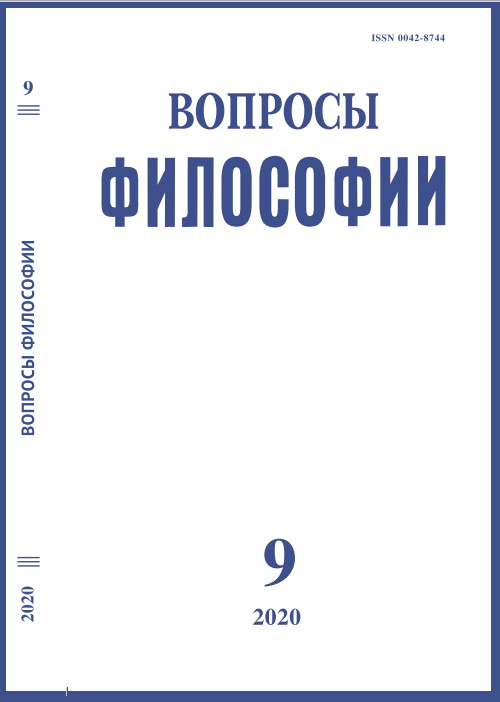Their Role in Development, Evolution and Crisis of Political Modernity
DOI:
https://doi.org/10.21146/0042-8744-2020-9-75-86Keywords:
civic type of communality, religious type of communality, Modernity, structurality, non-structurality, individuation of personhood, individualism, holism, panrationalismAbstract
The article is focused on new understanding of Modernity as a synthesis of civil/structural and religious/nonstructural forms of communality. Civil and religious types of community are considered as two basic components of modern sociality, cyclically supporting and replacing each other as the social space expands and new civilizational segments are included in it. Based on the work of a number of researchers, the author hypothesizes that at the present stage the crisis of Modernity is connected with the limits of existing forms of civic/structural communication in providing a real connection and inclusion of different cultures and societies on modern stage of Globalization. The development of new nonstructural emotional forms of social identification, based on compassion could prevent split of global community and prepare global social space for another step of civic/structural integration.

